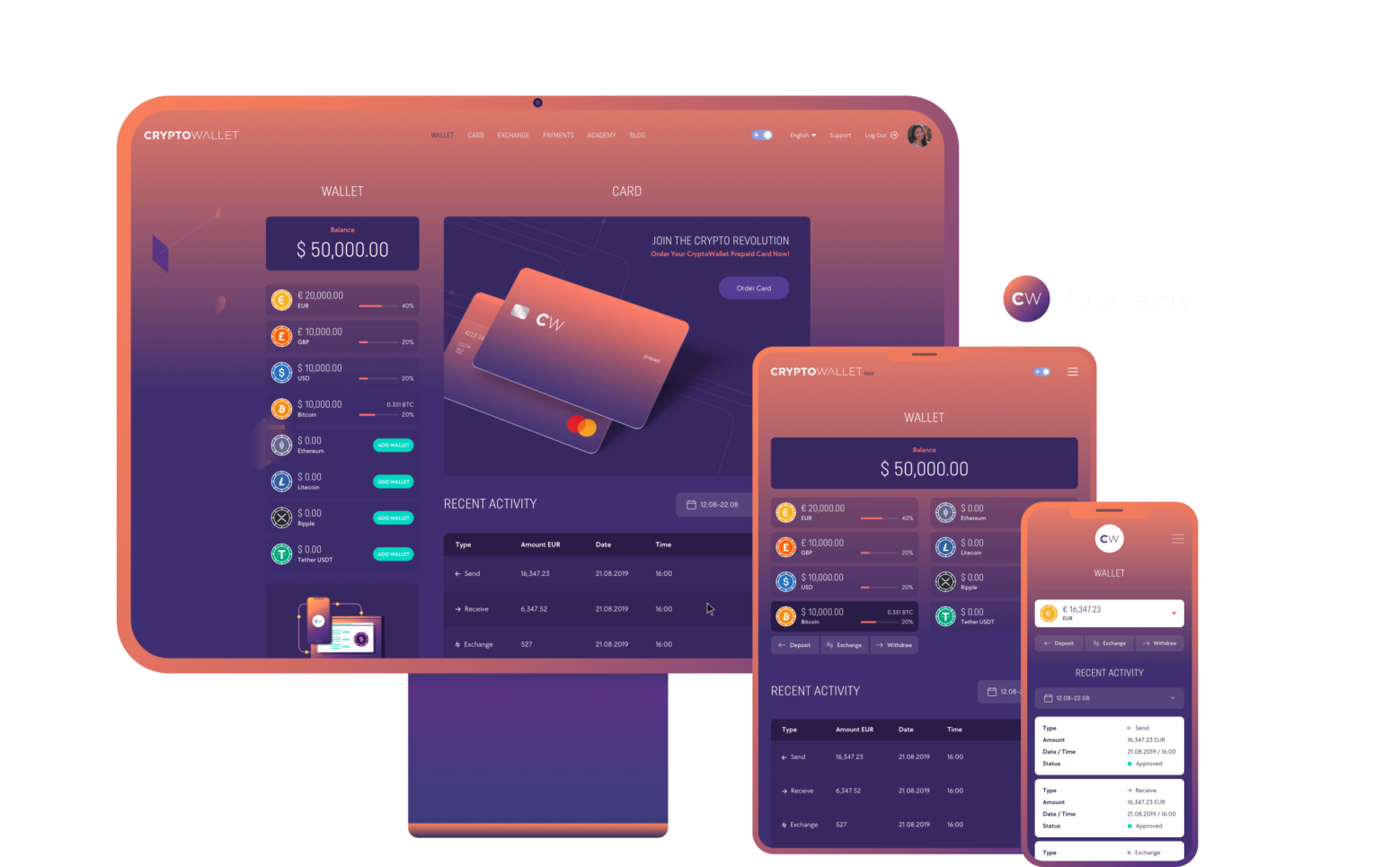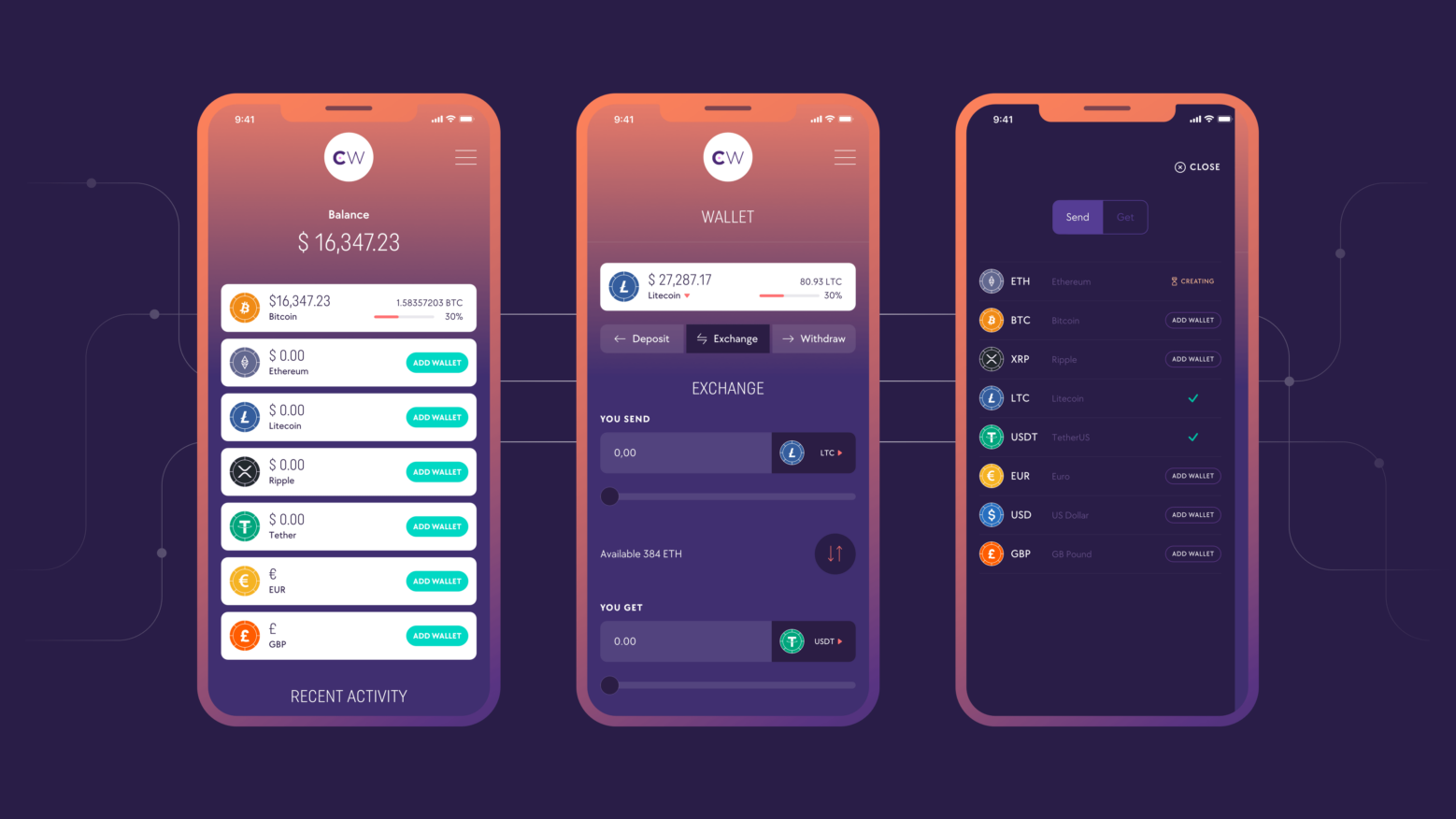How to Sell Crypto in Ireland
It’s every investor’s dream — selling crypto for a nice profit. When you’re in the green and you’re ready to cash out, the next important decision to make will be choosing where to sell your crypto for euros in Ireland.
Finding the best exchange to sell your crypto isn’t as easy as it sounds! Ideally, you’re looking for an exchange that has the best withdrawal methods, fiat currency support, and the lowest trading fees. This guide will help you discover the best ways to sell your cryptocurrency for cash in Ireland.
How to Sell a Large Amount of Crypto
If you want to sell a large amount of Bitcoin or other digital currencies of up to €50,000 or more, using an ordinary crypto exchange may not be the best way to do it. This is because they may not have enough liquidity to complete the trade which may result in price slippage.
The best way to sell a large amount of virtual currency is through using over-the-counter (OTC) trade. OTC trade offers a simpler and cheaper way to buy and sell large amounts of crypto.
Here are some step-by-step instructions on how to sell large crypto through an OTC trade.
- Find a counterparty for the trade. This could be done through a chat room or an OTC brokering platform. When choosing an OTC broker, consider the minimum and maximum trade amount available, the transaction fees, sign up process, several supported cryptocurrencies, etc.
- The next step is to negotiate the terms of the trade with the broker. If you want to sell ETH, for instance, you need to specify the amount of ETH you want to sell, when you want the trade to take place and your desired price.
- Once a price has been agreed upon between both parties, the buyer will send the agreed amount of fiat to you and you will send a similar amount of crypto coins or tokens to the buyer in return. Depending on the location you’re trading from, you and your counterparty might need to do KYC or due diligence on each other to meet legal regulations before trading.
How to Choose the Best Way to Sell Crypto
The best way to sell crypto isn’t objective and it differs based on a crypto trader’s experiences. What is ideal is to work out a method that works well just for you.
When you feel like it’s time to trade those profitable crypto assets back to fiat money, you need to ask yourself these questions:
How do I want to get paid?
You must decide if you want to receive money from your PayPal account, your credit card, your bank account, or maybe through cash.
Knowing this will lead you to ask the next question
Which exchange do I want to use?
Various exchanges have different payment methods, financial services, fees, and exchange rates. You need to compare the available options carefully and go for the one that suits your needs.
Make sure you consider the following when choosing an exchange to sell your crypto: the exchange rate/ price, trading or withdrawal fees, the withdrawal limits of the exchange, high-level security features, the level of customer support, and existing reviews about the platform.
There are no perfect ways to sell crypto without some drawbacks, but considering all these before choosing where to sell your crypto will help you make the right decision.
Cryptocurrency Regulations
There is currently no prohibition on the use of cryptocurrencies in Ireland but the Central Bank of Ireland has issued warnings on the risks associated with investing in crypto assets.
To curtail the risk of use of crypto assets to facilitate crimes, Ireland has passed a law that requires cryptocurrency companies offering exchange services, called virtual asset service providers to register with the Irish Central Bank and comply with the EU’s anti-money laundering guidelines.
The law requires that VASPs who exchange fiat currencies for cryptocurrencies must strictly follow “know-your-customer” requirements. VASPs are required to conduct due diligence on their customers, know the source and destination of their crypto assets, and report any suspicious financial activities.
Cryptocurrency transactions are subject to both income tax and capital gains taxes in Ireland, as well as to Capital Acquisitions Tax, or ‘Gift Tax’. In Ireland, crypto investments are treated just like investments in stocks or shares. Hence, if you’re making profits (or losses) through selling, gifting or exchanging your cryptocurrency, you’ll pay a 33% capital gains tax (CGT) to Revenue but the first €1,270 profit a year is free.
You will need to file a tax return to Revenue each year when your profits exceed this amount. The following activities attract CGT tax: buying crypto as an Investment, selling crypto, exchanging and trading crypto, gifting crypto, margin trading, ICOs, etc. The following activities are tax-free: token and coin swaps, transfer of cryptocurrencies between own wallets.
The following activities attract Income tax treatment: getting Paid in Crypto, accepting Crypto for payment of goods and services, airdrops, signup & refill Bonuses, interest from Lending, Staking, DeFi and Masternodes, and Crypto Mining.
Under Capital Acquisitions Tax (CAT), receiving crypto inheritance or gift is considered taxable.
The Best Exchanges to Sell Crypto in Ireland
1 CryptoWallet.com #1 Recommended


While CryptoWallet.com is an exchange, it allows you to do so much more. Earn passive crypto income, pay bills in crypto, open a brand new IBAN, and even spend crypto in stores and online!
To learn more or order your crypto debit card, download the CryptoWallet.com app here.
- Cryptocurrencies Supported: BTC, ETH, LTC, XRP, and USDT
- Reputation Score: 5
- Ease of Use: Very easy
- Fees: Fees vary based on trading activity



2 Indacoin

Indacoin offers a simple way to buy cryptocurrencies with a bank card to over 500,000 users. It’s been in existence since 2014.
- Supported Cryptocurrencies: BTC, ETH, XRP, and 100+ more
- Reputation Score: 4
- Ease of Use: Easy
- Fees: Above average fees
3 ShapeShift

ShapeShift is one of the most popular instant exchanges. Founded since 2013, it allows users to buy or sell any cryptocurrency immediately.
- Supported Cryptocurrencies: Supports over 50 cryptos
- Reputation Score: 5
- Ease of Use: Easy
- Fees: Trading fees vary based on trading activity
4 Bitstamp

Bitstamp exchange was founded in 2011. It allows you to buy and sell digital assets using a variety of payment methods like a debit card or bank transfer.
- Supported Cryptocurrencies: 10+ including Bitcoin
- Reputation Score: 5, established in 2011
- Ease of Use: Easy
- Fees: Expensive trading and deposit fees
5 CoinSwitch

CoinSwitch is an established crypto exchange that, nlike other centralized exchanges like Binance or Coinbase Pro, does not hold user funds.
- Cryptocurrencies Supported: More than 100 cryptos.
- Reputation Score: 4
- Ease of Use: Intermediate
- Fees: Affordable fees
6 Changelly

Changelly is a very popular cryptocurrency exchange platform founded in 2013. It is a non-custodial exchange that holds no liquidity and does not require any deposits in foreign currency or local currency.
- Cryptocurrencies Supported: Supports 170+ cryptos.
- Reputation Score: 4
- Ease of Use: Easy
- Fees: Fees: High fees when trading with fiat currencies
7 BC Bitcoin

BC Bitcoin is a UK based cryptocurrency broker. It offers fast deposits and withdrawals for cryptocurrency transaction and has great customer service.
- Cryptocurrencies Supported: Supports 90+ cryptocurrencies
- Reputation Score: 4
- Ease of Use: Intermediate
- Fees: Above average fees
8 Bitpanda

Bitpanda is a reputable exchange based in Europe. The company was founded in late 2014.
- Cryptocurrencies Supported: Supports 25 cryptos
- Reputation Score: 4
- Ease of Use: Easy
- Fees: Above average fees
9 Bittrex Global

Bittrex is one of the popular US exchanges that focuses on the security of its users assets. The exchange’s trading platform is highly praised for its speed and stability.
- Cryptocurrencies Supported: Supports 400+ cryptocurrencies
- Reputation Score: 4
- Ease of Use: Intermediate
- Fees: Below average fees
FAQ
Who controls cryptocurrencies?
Cryptocurrencies or virtual currencies are digital modes of exchange created and used by private individuals or groups to enhance digital payments. Due to this decentralized nature in creating and distributing cryptocurrencies, there is no single authority that controls crypto unlike what we have in traditional currency.
The supply and value of cryptocurrencies are controlled by the activities of their users and do not rely on the decisions of central banks or other regulatory bodies. For many cryptocurrencies, Decentralized Autonomous Organizations (DAOs) govern the operation and policies surrounding the coins. DAOs normally consist of the coin holders.
How are cryptocurrencies different from standard money?
Cryptocurrencies are different from standard currencies in the following ways:
- Regular currencies are issued by the government and regulated by the central bank while cryptocurrencies are mined/ created by individuals and are not within the control of several governments in the world.
- Another difference exists in the amount of supply of the currencies. While standard money is unlimited in supply which often leads to inflation, most cryptocurrencies have a cap when it comes to supply. This means there is a set amount of crypto coins that will ever be in supply. For instance, the total number of Bitcoin coins that will ever be in supply is capped at 21 million.
- Bitcoin is also more portable, durable, safe, divisible and smart than standard money.
So is bitcoin a currency?
Bitcoin is an efficient means of transferring money over the Internet and paying for goods or services just like fiat currency. It’s run by a decentralized network of individuals with a unified and clear set of rules. It’s been accepted as a better option compared to central bank-controlled fiat money.
Bitcoin has value as a currency because it possesses the six characteristics of a successful and acceptable currency. Due to the low global adoption and lack of regulation at the moment and its volatile price nature, many people struggle to convince clients to accept it as a unit of exchange for value.
Is tax due on my cryptocurrency investment profit?
If you dispose of or use crypto by cashing it on an exchange or buying goods and services, you will owe taxes. If the crypto asset transactions are regarded as a trading activity, the profits will be subject to income tax/ corporation tax. And if the crypto transaction was seen as an investment, the profits will be subject to capital gains tax (CGT).
However, the first €1,270 of your cumulative annual gains (after deducting expenses and losses from other cryptos) are exempt from tax. And other profits you make above this figure will be taxed at 33% and you will need to file a tax return each year.
What happens if I make a loss?
Due to the volatile nature of cryptocurrencies, you can also make losses in your investments. Even if you made a loss from your investments, you will still need to file a tax return annually – a CG1 form if you are a PAYE employee and a Form 11 if you are self-employed.
If you have made an investment in Bitcoin which resulted in losses, and a separate investment in the same year in Ethereum which earned you a profit, you can use the loss from the Bitcoin investment to nullify the capital gain you made through Ethereum.